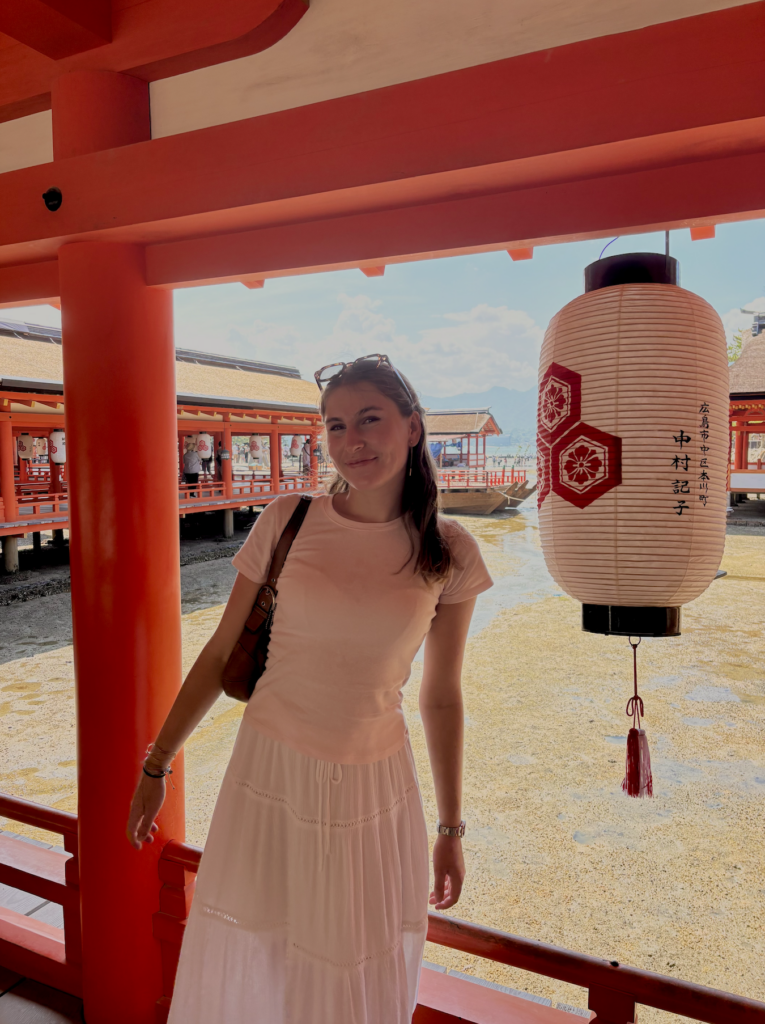
Victoria Hill
CAS ’28
Philosophy, Politics, & Economics
PGS: Science Accessibility in India
GRIP: International Business in Tokyo
Contact
Ask Me About…
Within six months, I went from Tokyo to Dehradun, India—two places that could not be more different. Tokyo runs on precision: trains are on time to the second, schedules are followed exactly, and even rush-hour crowds move in quiet order. Dehradun is the opposite: life moves at its own pace, plans change often, and relationships matter more than deadlines.
In Tokyo, I learned how to prepare down to the smallest detail and fit into a highly structured system. Every meeting started on time, and efficiency was the expectation. In Dehradun, I learned how to adapt quickly, problem-solve on the fly, and work with whatever resources were available. Power cuts, traffic delays, and last-minute changes were just part of the day.
Because I’ve done this 180-degree shift, I understand both the challenges and rewards of very different cultural environments. I can share first-hand what it’s like to adjust to new norms, navigate language barriers, and manage the emotional side of moving abroad. I know how to prepare for a highly structured environment like Tokyo, and I know how to succeed in a more fluid, unpredictable setting like Dehradun.
That range means I can help other students think through where they might thrive—not just in terms of academics or internships, but in lifestyle, pace, and personal growth. Whether someone needs advice on packing for punctuality or preparing for spontaneity, I’ve lived both and can help them feel ready before they ever board the plane.
My Experience Abroad
As a PPE major, I’m drawn to the intersection of political systems, economic incentives, and ethical decision-making. My international experiences in Tokyo and India directly reinforced this focus.
In Tokyo, I worked in consulting entirely in French, helping a European client navigate the Japanese market. This experience reflected the economic and philosophical side of PPE—understanding how cultural norms, regulatory structures, and strategic priorities shape market entry. Operating in a trilingual environment (French, Japanese, English) also honed my cross-cultural communication skills, which are critical for analyzing global economic and political issues.
In India, my work centered on climate change politics, engaging with local stakeholders to understand how environmental policies are shaped by political realities and economic trade-offs. This connected to the political theory and ethics components of PPE—examining how developing nations balance environmental protection with urgent development needs, and how global agreements play out at the local level.
Together, these roles gave me a comparative perspective: in Tokyo, I saw how advanced economies make strategic business decisions in complex markets; in Dehradun, I saw how resource-constrained settings make equally complex choices under different pressures. Both settings reinforced my academic goal of studying the relationship between political institutions and economic behavior, and my professional goal of working in international strategy and policy.
By connecting classroom theory to real-world systems in two very different contexts, I’ve gained a deeper, more nuanced understanding of how politics, philosophy, and economics interact on the global stage.
Other Highlights
The first and most meaningful highlight of my abroad experiences was the people I met—especially within the programs themselves. Even at Penn, I don’t think I would have crossed paths with many of them. Living, working, and exploring together in a completely new environment created bonds that went far beyond casual campus connections. I’ve built friendships that I know will last for years, and they’ve become just as important to me as the professional or academic skills I gained.
The second highlight was the food. I’m a foodie, so being able to explore both Tokyo’s hidden ramen shops and Dehradun’s street snacks felt like a personal dream. Food became a gateway into each culture—it was never just about eating well, but about understanding traditions, sharing experiences with friends, and discovering how meals can bring people together.
The third highlight was the surreal feeling of actually doing the kind of work I’ve always said I wanted to do—internationally. It’s one thing to talk about wanting a global career, but it’s another to actually step into an office halfway across the world and contribute meaningfully to a project. Those moments of sitting in meetings, navigating cultural differences, and realizing, “I’m really here,” were both humbling and empowering.
Together, these highlights made my abroad experiences not just memorable, but formative. They showed me the value of people, culture, and action in shaping both my personal and professional path.



